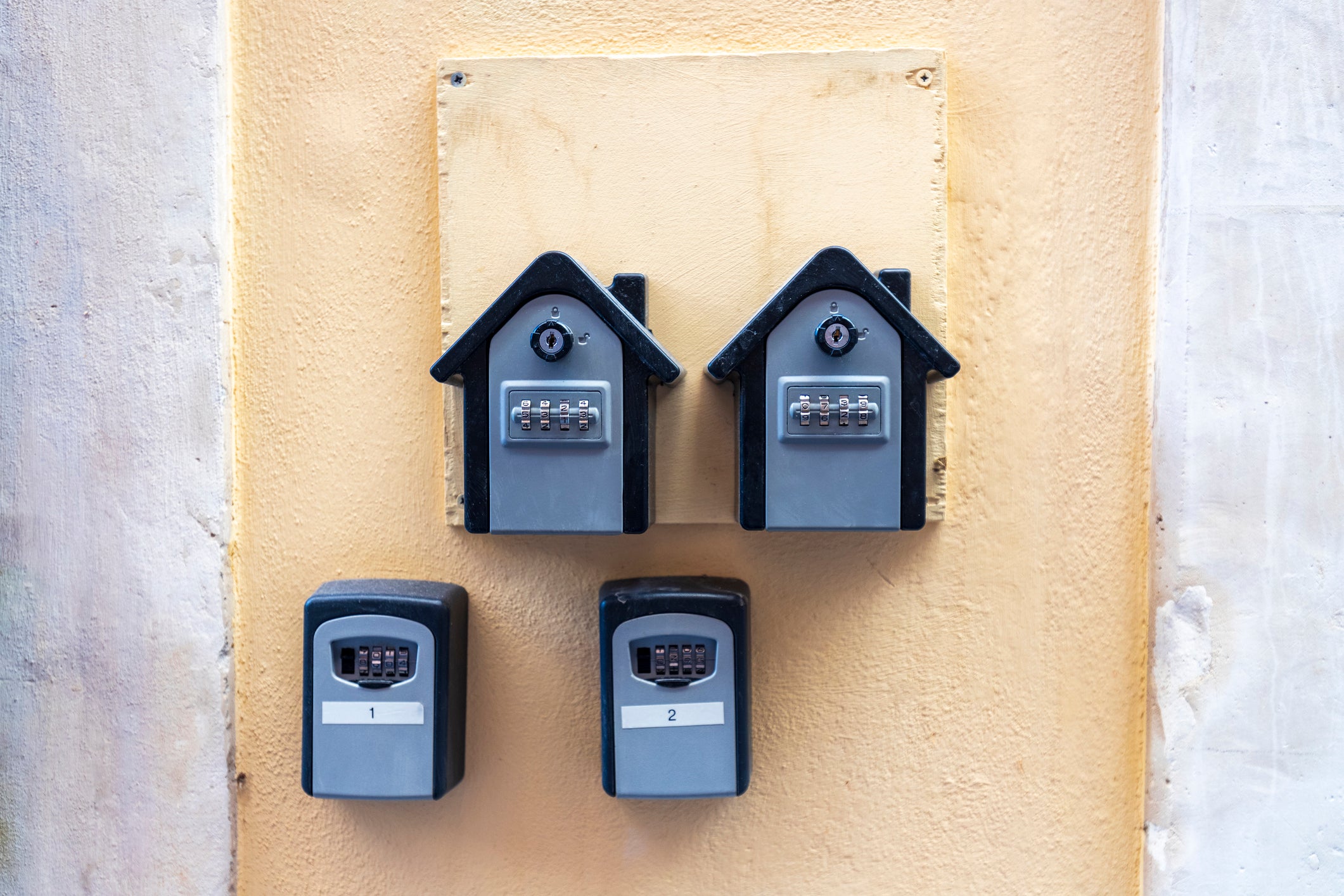Italy ban rental key boxes nationwide – what does it mean for tourists?
Hosts now have to meet guests in person rather than using remote check-ins

Your support helps us to tell the story
From reproductive rights to climate change to Big Tech, The Independent is on the ground when the story is developing. Whether it's investigating the financials of Elon Musk's pro-Trump PAC or producing our latest documentary, 'The A Word', which shines a light on the American women fighting for reproductive rights, we know how important it is to parse out the facts from the messaging.
At such a critical moment in US history, we need reporters on the ground. Your donation allows us to keep sending journalists to speak to both sides of the story.
The Independent is trusted by Americans across the entire political spectrum. And unlike many other quality news outlets, we choose not to lock Americans out of our reporting and analysis with paywalls. We believe quality journalism should be available to everyone, paid for by those who can afford it.
Your support makes all the difference.Tourists checking into holiday rentals in Italy must now be met by their hosts following a ban on self-check-in key boxes across the country.
The Italian Interior Ministry said the decree was a security measure for hosts to verify the identities of guests in person rather than providing remote instructions to access rental accommodation using key codes.
Property owners using host platforms such as Airbnb and Booking.com often leave instructions for travellers to check themselves in and pick up keys by using the safes that have recently become symbolic of overtourism in Italian cities.
Vittorio Pisani, the national head of police, said the order was issued in light of the “intensification of the phenomenon of so-called ‘short-term rentals’” as well as “the numerous political, cultural and religious events being planned”.
Rome’s next Jubilee Year will be celebrated in 2025, and the city expects to welcome 35 million pilgrims and tourists to embark on a journey in the Italian capital.
Mr Pisani added that the measure aims to prevent “safety risks in relation to the possible accommodation of dangerous individuals or those linked to criminal or terrorist organisations”.
Daniela Santanchè, minister of tourism, said: “I greatly appreciate the initiative of the Ministry of the Interior and I underline the full and fruitful collaboration with Minister Piantedosi. The new circular from the Ministry of the Interior on the identification of guests in accommodation facilities, in fact, is an essential step to prevent risks and guarantee a serene and positive tourist experience, both for visitors and operators.”
Guests’ personal details and identity documents must also be sent to police authorities by property owners within 24 hours of check-in.
Rome mayor Roberto Gualtieri said that the ban is “good news for everyone” that means “more effective controls on access”, report Euronews.
He added that “suitable intervention methods” will be introduced to remove wall safes following the ban.
The crackdown follows protests in Rome at short-term rental properties by anonymous activists in the name of Robin Hood.
Holidaymakers checking into homes in the Italian capital arrived to find key safes hacked off the wall with a protest note and the green felt hat of the famed outlaw in their place in October.
There are an estimated 35,000 Airbnb-style apartments in the Eternal City – up from just 17,000 three years ago.
One note read: “If you are looking for the key safes and can’t find them, read this.
“We are rebelling. We have removed these key storage boxes to denounce the sell-out of the city to short-stay holidays, which alienate locals and leave residents out on the streets.”
Mayor Sara Funaro’s Cabinet also approved a 10-point plan that would ban key boxes on buildings in Florence’s historic centre, a statement from City Hall said last month.
In a recent protest, Florentines taped red Xs over the key boxes, outraged at the transformation of the city centre into a collection of short-term holiday rentals that have displaced local businesses.
Rental platform Airbnb has criticised the decree preventing remote property check-ins.
An Airbnb spokesperson told The Telegraph: “Self-check-ins provide a convenient option for both hosts and guests to manage arrivals in a flexible way and adapt to occasional unexpected changes in travel plans. They’re used all around the world and combined with our guest identity verification, they have also provided high security standards.
“We look forward to working with the Italian government on solutions that help address local safety concerns while meeting the needs of our hosts and guests community.”
In November, the mayor of Marseille also announced a ban on key safes mounted outside holiday lets in a clampdown on seasonal rentals in the city.
City hall agents will be permitted to dismantle the now illegal lock boxes with angle grinders if hosts do not heed warnings to remove the self-check-in service.
Mayor Benoît Payan wrote on social media: “The people of Marseille can’t take it anymore, and we’re taking action.
“Stop seasonal rentals invading Marseille!”
For more travel news and advice, listen to Simon Calder’s podcast
Join our commenting forum
Join thought-provoking conversations, follow other Independent readers and see their replies
Comments